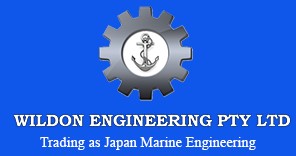The Impact of Covid-19 in the Marine Vessels and Why this is The Best Time for Drydock and Maintenance
Blog | November 30th, 2020Following the COVID-19 pandemic and the negative impacts that it has brought, the shipping industry is facing a few challenges within the locally available precautionary measures, team changes, administrative inconsistencies, port, banner state inspections and specialised activities.
Truth be told, Coronavirus episode has presented significant difficulties to each industry, as it is a totally new circumstance. In light of those troubles, shipping organisations alongside specialists have joined their forces to keep worldwide business action and remain operational.
Concerning specialized tasks, dry-docking measure is likewise a test for shipowners because of the uncertainty that the crisis has brought. A few specialists guarantee that they are somewhat on edge for the second about the dry-docking activities as they don’t have the foggiest idea whether boats going for dry dock will get out on time.
Aside from the dry dock, basic extra parts and vessels’ fix experience similar difficulties, as there are delivering and pricing impacts as well. Some boats may encounter operational difficulties, for example, shipyards or dry docks closing down. Also, overviews and reviews can at times not be directed in light of the fact that assessors can’t go to the boats because of movement limitations or quarantines.
Dry-docked marine vessels slip into specially excavated shore berths when below waterline repairs are scheduled. In draining the water from the dock, the hull of the ship is exposed for inspection. This is a place that conducts major ship services, the kind of upkeep work that can’t be performed on the open sea. It’s also a place where marine spare parts and equipment can be loaded, but just how operation-essential is this drydock and maintenance, and why is now the best time for it.
It is essential to include the necessary marine vessel parts and accessories for maintenance. Japan Marine Engineering Co. has the necessary items in their scope of supply. Among those are Diesel Engine (Main & Auxiliary), Turbo Charger, Pumps, Compressors, Purifier/Separators, Heat Exchangers/Coolers, Stern Tube Seals, Deck Cranes & Machinery, Anchor & Chain, Cathodic Protection (Marine & Industrial Applications), Anti-Fouling System, Mooring Ropes, Polypropylene or Nylon Ropes & Wire Ropes, etc., Navigation & Communication Equipment & Spares, JIS, DIN & ANSI Standard Valves,
Mechanical seals – hatch cover, and rubber packing’s – tank cleaning machines & ventilation equipment ships don’t enter drydock facilities often. They can be expensive to use, and then there’s the fact that there’s usually a queue of ships waiting to gain entry. As soon as a boat does slip into that facility, a long list of awaiting repairs slaps into the hand of the drydock owner.
A mountain of postponed repairs, jobs that couldn’t be done while the vessel was sailing, now require immediate attention. Again, welders working there receive their fair share of the work, but not every job can be fixed with a weld or fastener tightening tool. For that propeller, a whole exterior mounting system and propeller might be recommended. The spare parts must be on-hand. Either that, or the boat will be confined to an awaiting slip until the parts arrive. Delays like that leave boat owners feeling exasperated. For larger vessels, such lengthy periods of inactivity are absolutely unacceptable.
Optimized by NetwizardSEO.com.au
Recent Posts
- Yanmar Marine Compressors: Applications in Engine Starts, Valves, and Safety Systems
- Water vs Oil in Stern Tube Bearings: The Cost & ESG Truth Shipowners Can’t Ignore
- Yanmar Turbochargers: How Correct Spec-Matching Supports Lower SFOC and Prevents Surge
- Yanmar Diesel Generators: Planned vs Predictive Maintenance Strategies for Remote Operations
- Mareflex SOLAS Marine Tapes: Safety Applications on Marine Vessels
- Yanmar Propulsion Systems: FPP vs CPP Propellers for 6EY and 6N Series Fuel Efficiency
- Mitsubishi K.K. Purifier Separator: The Key to Cleaner Fuel and Smoother Operations
- Kemel Air Seal Retrofits: Leak-Free Stern Tube Seals and Reduced Lube-Oil Risk
- Yanmar Auxiliary Generators: Sizing for Reefers, Hotel Loads, and Dynamic Positioning Systems
- Water Lubricated Stern Tube Bearing (EVR): Proven Technology for Smooth and Quiet Operations
